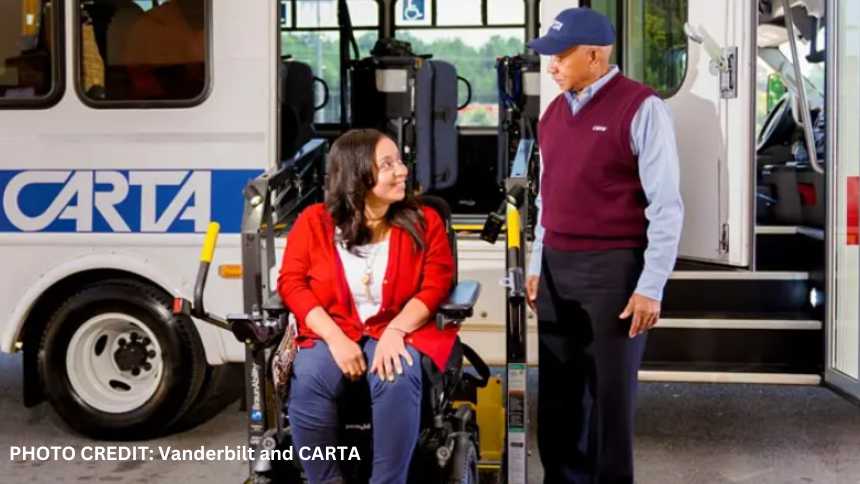
Vanderbilt researchers develop AI-powered scheduling for Chattanooga’s CARTA
The innovative software system aims to improve the efficiency of public transportation for individuals with special needs.
Vanderbilt University researchers have developed an innovative software system incorporating artificial intelligence (AI) that aims to improve the efficiency of public transportation for individuals with special needs.
The research, led by Abhishek Dubey, Associate Professor of Computer Science and Electrical and Computer Engineering, will be presented in a paper at the International Joint Conference on Artificial Intelligence (IJCAI) in August.
In the paper, Dubey and his team discuss their work with the Chattanooga Area Regional Transportation Authority (CARTA) that started in 2020 to improve the operation of its paratransit service, a critical component of traditional transit services that offers door-to-door assistance for people who face challenges using standard transit routes. Pick-up and drop-off times for those individuals must also be adhered to under federal regulations.
However, like other transit systems across the country, CARTA has struggled operationally because of decreasing ridership and increasing operational costs. To improve efficiency, the team developed a set of data-driven optimization modules that incorporates AI to handle online booking, day-ahead scheduling, and real-time requests received by CARTA’s paratransit fleet for routes in the Chattanooga region. Recently, the team has also started running tests with a microtransit version of the system that will be open for the general public.
Results from a test of the SmartTransit system that Dubey and his team developed showed significantly fewer detour miles and a higher percentage of trips with more than one passenger, thus reducing the total number of miles the vehicles must drive, researchers said. Another area of improvement was in the generation of manifests, a sequence of pick-ups and drop-offs assigned to each vehicle.
“The CARTA operators revealed that the algorithm closely resembled the manifests generated by hand, and even more crucial, the algorithm took a minute to generate the manifests, whereas CARTA operators took two weeks to generate the manifests by hand,” said Dubey,who is also a Senior Research Scientist at the Institute for Software Integrated Systems (ISIS). “To the best of our knowledge, this work presents one of the first examples of using open-source algorithmic approaches for paratransit optimization.”
Like what you've read?
Forward to a friend!

